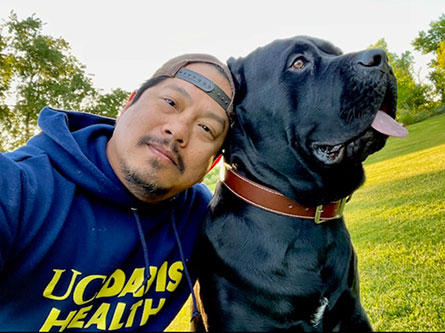
How one dermatologist’s hard work is improving skin treatments
Not only does Samuel Hwang maintain a busy clinical practice, but he’s also a dedicated researcher helping advance the field of dermatology. While The American Skin Association recently recognized his individual expertise with a 2020 Research Achievement Award in Psoriasis, he attributes his success to the collaborative environment at UC Davis Health.
“I’m honored that my dermatology peers have recognized the work my laboratory team and I have done, in collaboration with wonderful colleagues at UC Davis and around the world,” Hwang said. “This university has an incredible number of talented psoriasis researchers, all doing significant work in the field. My success is certainly linked to working with such a stellar group of experts.”
Hwang, professor and chair of the UC Davis Department of Dermatology, is a board-certified dermatologist with extensive training as a physician and scientist.
His clinical and research interests include skin cancers and immunological diseases of the skin.
Hwang’s most recently published study investigated how the Western diet, one rich in fats and sugars, may lead to psoriasis. This is a common inflammatory disease that causes skin cells to form scales and itchy red patches that can be painful.
As a true physician-scientist, Hwang combined his medical degree program at Harvard Medical School with a doctoral program at the University of Basel in Switzerland.
He advanced his research interests after residency and fellowship training at UCSF by working at the National Institutes of Health for nearly 12 years.
In addition to his work in psoriasis, Hwang has spent nearly two decades working to understand the human body’s immune response to tumors.
Hwang has published more than 75 original and review articles in Lancet, Cancer Research, Journal of Immunology, and many others.
Along with his research and academic efforts, Hwang uses his clinic to offer patients the latest treatments and tips on how best to control psoriatic disease.




